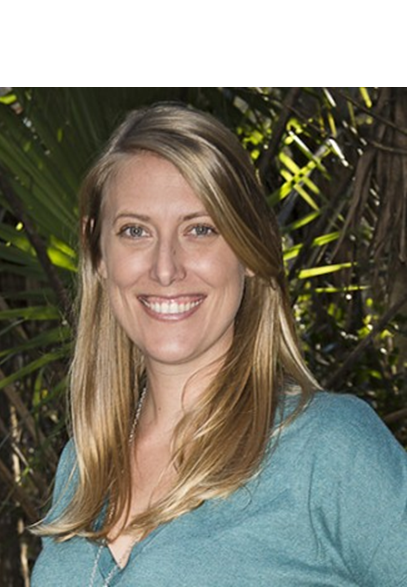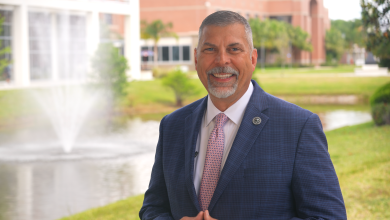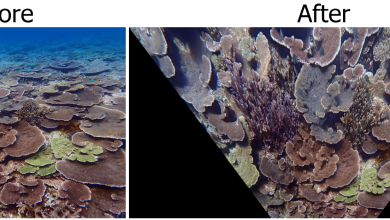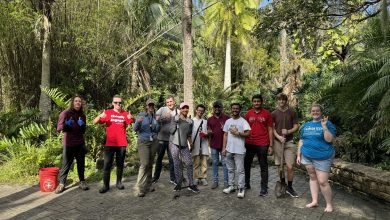An Interview with Florida Tech Research Scientist: Lauren Toth, Ph.D.
- Lauren Toth, Ph.D., is a post-doctoral research scientist whose research focuses on determining what environmental factors influence coral reef development
What is your research about?
My research combines geochemistry, climatology, paleoecology, and modeling to determine what controls coral reef development through time. The goal of my research is to determine what combinations of environmental conditions benefit or are detrimental to the growth of coral reefs.

What is paleoecology and climatology?
Paleoecology is the study of ecosystems of the past. I collect cores from coral reefs and analyze changes in species composition to reconstruct how reefs changed through time. Climatology is the study of averaged weather conditions over long periods of time. I develop past climate records by using chemical tracers preserved in fossil coral skeletons.
How can you tell what climate was like in the past from a coral fossil?
We measure the geochemistry of the coral fossils. For example, we can use radiocarbon dating and uranium to thorium element ratios to determine the age of the coral fossil. The geochemistry also tells us what some of the environmental conditions were like when the coral was alive. We can estimate past temperatures and salinity (the salt content of the water) by measuring oxygen isotopes. Isotopes are variants of an element that differ in the number of neutrons it contains. For example, 18Oand 16O are the same element but differ in their mass by 2 neutrons. The ratio between 18Oand 16O isotopes provides evidence on if the temperature was warming or cooling when the coral was alive. We also look at other elemental ratios like strontium:calcium, which also tells us about past temperatures and barium:calcium to approximate to estimate upwelling (cold nutrient rich water near the ocean surface).
Why are you interested in coral reefs and why is it important to study them?
Coral reefs support a high diversity of marine organisms. They are critical to supporting marine fisheries, for shoreline protection and for tourism; however, over the last several decades, coral reefs have been degrading at an alarming rate. Although we know that climate change will have a severe negative impact on coral reefs in the future, we can’t yet fully predict how these impacts will manifest. By investigating the impact of climatic variability on coral reefs in the past, I hope to gain new insights into the future of coral reefs that may help us preserve these key ecosystems into the future.






